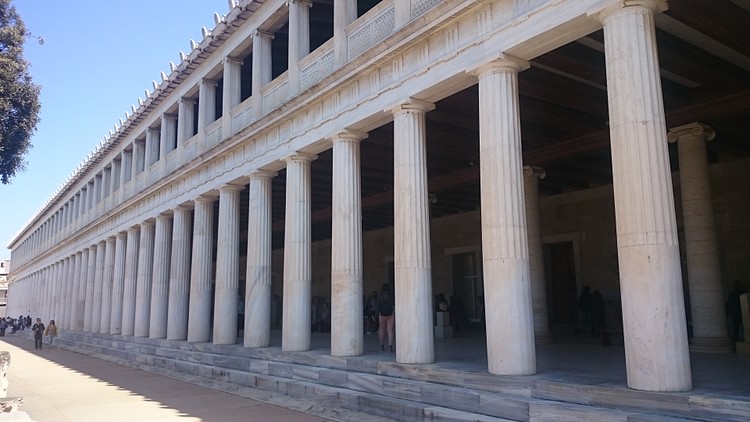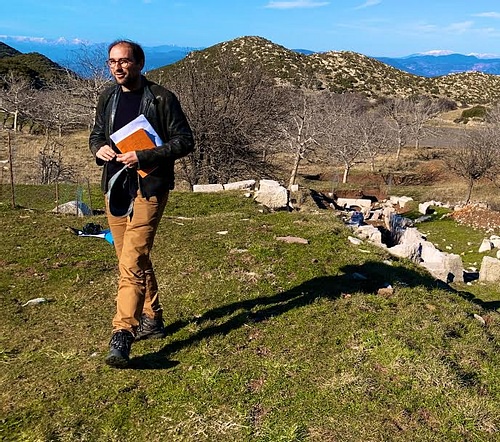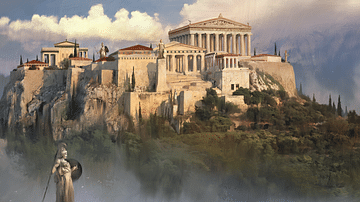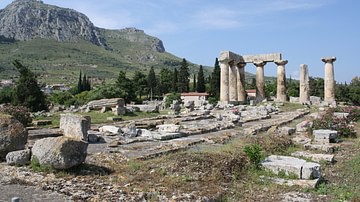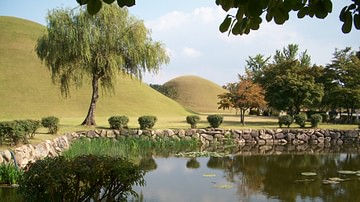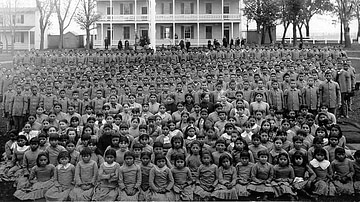The American School of Classical Studies in Greece has been running its operations since the 19th century CE, with excavations across the country and an academic program that runs throughout the summer and fall. They are arguably the most prominent foreign institution in Athens and are also the official representative of US archaeological endeavors in Greece. Our newest contributor, Sam Freeman recently had a chance to sit down with both the Director, Jenifer Neils, and the Assistant Director, Eric Driscoll, to learn about the school's history and its activities, from their digs in Corinth to their relationship with the Greek government.
SF: Hi Eric and Jenifer. Thanks for sitting down to talk to me about the American School. Can you tell me a bit about your backgrounds?
ED: Sure. As an undergrad in Chicago, I took a class in Greek art, mostly to fulfill a distribution requirement. Blown away by what I learned, I decided to refocus my studies on Greek history and archaeology. I later came to the American School for a year to do the regular program and ended up staying in Greece. I did go back to California but returned to Athens on a fellowship from the American School and eventually landed the job of Assistant Director.
JN: I went to Bryn Mawr College, where I majored in Classical and Near Eastern Archaeology, and later got a degree in Mediterranean Archaeology from Sydney University. My PhD is in Greek Art and Archaeology, and I have excavated in Italy and Greece, worked as a museum curator, and was a professor for 35 years at Case Western Reserve University. I am also the first female director of the American School.
SF: Can you tell me about the genesis of the American School? When was it founded?
ED: The school was founded in 1881 CE by a group associated with the Archaeological Institute of America. They sent letters to universities on the East Coast to request their involvement, explaining that the School would be a representation of the AIA in Greece, though acting as a separate legal entity. The first batch of students arrived in the fall of 1882 CE.
SF: Given that the school is financed primarily by an endowment and donations, what can you tell me about your benefactors? Have you had any notable names over the years?
ED: Yes, we have. The Carnegie Corporation gave us the money to build the Gennadius Library, and another major benefactor in the pre-war period was John Rockefeller. He anonymously funded most of the excavation of the Athenian Agora, donating at least $1,000,000 in the 1920s and 30s CE. During the interwar period, the single most powerful person at the school was Edward Capps, the Chairman of the Managing Committee. He was ahead of his time in his approach to fundraising and took our endowment from around $100,000 to millions by the 1950s CE.
After the war, Rockefeller continued funding the Agora excavations and even rebuilt the Stoa of Attalos. More recently, we have received generous support from a range of institutions like the Stavros Niarchos Foundation, as well as numerous benefactors.
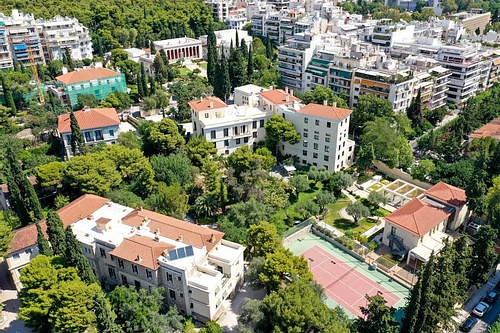
SF: Even with generous benefactors, I have heard that management boards can be quite conservative with the money they make available to their institutions. Is that the case for the American School or do you utilize your endowment liberally?
ED: Being responsible with our finances is one of the board's priorities, and there are multiple levels to that. For example, since our investments and donations are mostly in US currency, our purchasing power suffers when the Euro increases relative to the US dollar. Conversely, if the Euro is falling relative to the dollar, the opposite happens. So overall, the board is looking at the long-term management of the school and makes our funds available accordingly.
SF: Tell me about the leadership structure of the school. Who is in charge?
ED: The day-to-day operations of the American School are entrusted to the Director, Jenifer Neils. She is appointed to a five-year term and usually has the last say regarding things like personnel decisions and the overall activities of the School. She is also the school's legal representative when we sign contracts for issuing excavation permits. So in the eyes of the Greek government, Jenifer is the leader, but from a broader perspective, the Director, the Chair of the Managing Committee, and the Board of Trustees all work together in pursuit of our goals.
SF: Let us talk about your academic program. What can you tell me about its setup?
ED: We have a summer program that runs for six weeks, but our regular program runs from September to May and is divided into three parts. The first period is from September to November and consists of four long trips throughout Greece for two weeks each. It involves exploring famous places like Olympia and Delphi but also includes sites that even graduate students in Greek archaeology will not know of. The second part runs from December to March, where students visit sites and museums in the region of Attica. We visit the Acropolis multiple times to examine its different parts, from the Mycenaean and Bronze Age sections to the medieval and modern modifications. In the third part of the program, students have the freedom to do what they like, within reason. They might go on optional school trips to countries like Egypt, Turkey, Tunisia, or Russia, or they could participate in our digs.
SF: Out of the many projects you have ongoing, what are the American School's most prominent excavations?
ED: We have been working at Corinth since 1896 CE, so that is our flagship excavation, and it has been a part of our program since 1967 CE. As a crash course from April to June, students can dig there for three and a half weeks whether they have previous experience or not. The Agora excavation, which started in 1931 CE, is another major site for us.
SF: Have you done any digs at Sparta?
ED: Our students did some fieldwork there in the 1890s CE, but Sparta has traditionally been a British undertaking, so they have a number of sites dotted around the area.
SF: As the person who handles students' paperwork and visas, what has your job been like in 2020 CE? Has COVID derailed any of the school's plans?
ED: It has been challenging. The Greek immigration authorities closed in March, and the Greek embassies in the US stopped issuing visas for several months. All our appointments were either canceled or postponed, as well as those of our students and scholars from the US. The application process was reopened in August, but unfortunately, we canceled both of our programs in May. If a student had tested positive for coronavirus during the year, the whole school would have had to quarantine for two weeks, and that would have derailed everything. The number of COVID cases has risen enormously since late July, so canceling turned out to be the right choice. But we still have many scholars and students on campus who are pursuing their own research. They already have visas or residence permits, and a lot of them are teaching their classes remotely, so it has still been a surprisingly active year despite the cancellations.
SF: I have heard a lot of positive remarks about the American School's Blegen Library due to its extensive book collection. Where would you rank it alongside other notable academic libraries?
ED: The Blegen is one of the best libraries for researching the ancient Greek world. Countless dissertations and books have been written there, and even though our book count is not the largest, we have a considerable number of publications on Greek and Near Eastern archaeology, literary studies, and ancient history. Even when compared to places that already have preeminent libraries, like Yale or Harvard, our advantage is having Greek resources that almost no one else has, such as periodicals and monographs.
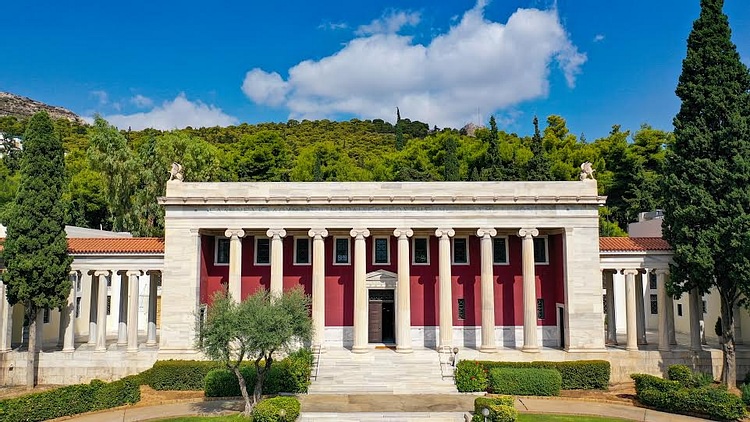
SF: Prior to the interview, you told me about some historic progressions within archaeology. For example, excavations in the early 1920s went from free-for-all treasure hunting to more methodical excavations. Can you elaborate on how that transition took place?
ED: The history of archaeology can be complicated, so it is overly simplistic to view it solely as a progression from treasure hunting to good science. It is true that the French are often critiqued for how they excavated at Delphi and the island of Delos, since those were big digs with carts removing dirt as quickly as possible, like in an Indiana Jones movie, but it is hard to point to a date when proper excavating practices started. Different schools and excavation directors proceeded at different paces. For example, the German excavations at Olympia in the 1870s CE were ahead of their time in how they recorded information about their work, whilst a lot of the early American projects were not as advanced; they sometimes involved demolishing Byzantine buildings just to locate old inscriptions. So we were especially keen to hire Charles Waldstein to be our first long-term director in 1889 CE - he went on to excavate the Heraion of Argos, which was a pretty scientific project compared to our previous ones.
SF: What can you share about the level of public interest towards archaeology in Greece? Is it something your average person cares about or is it mainly the concern of academics and elite classes?
ED: Greek archaeology has seen varying levels of public interest since the American School's creation. In the first half of the 20th century CE, many Americans involved in the school were from upper-class families, and the Athenian social scene allowed them to connect with the Greek royals and elites. That changed in the post-war period - American academia became more diverse when university enrollments became more accessible to the middle class, partly thanks to the GI Bill. The late 1940s CE was also a time of increased investment in Greece due to the Marshall Plan and the fight against communism, so many organizations were active here, and the American School received a lot of attention during that time.
Public interest nowadays is quite high again, particularly in America where the New York Times often runs front-page stories about ancient Mediterranean cultural heritage, and movies like "Troy" and "300" have helped raise people's interest as well.
SF: What is the nature of the relationship between the foreign schools? Considering that foreigners have led many excavation projects in Greece, has there been any tension between the institutes?
ED: Historically, there have been points when tensions arose. An example is when the Americans wanted to excavate at Delphi in the 1890s CE, which was a pre-existing project of the French. They had not done anything there for a while and showed no signs of excavating and so the Americans petitioned to dig there. The events are disputed, but after two successive government changes and the throwing around of political weight, the French ended up with the excavation rights, leaving the Americans feeling robbed and disappointed, though there was little justification for those feelings.
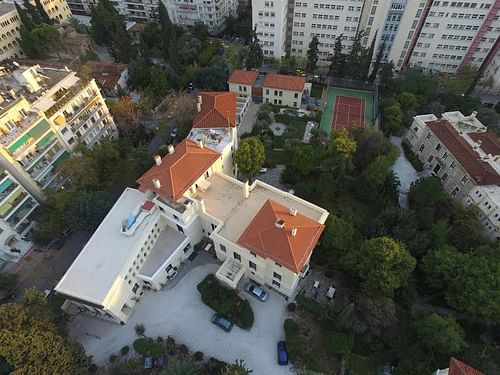
SF: Could you tell me about foreign archaeological schools and their relationship with the Greek government?
ED: The allocation of archaeological permits is a three-way affair between the Greek government, the foreign institutes, and the Greek archaeological community. The system developed in the 1920s CE due to uncertainties about whether American archaeologists in Greece had to be affiliated with the American School or not; the Greek government eventually decided they should be. This meant scholars could no longer make arrangements with a Greek scholar or an employee of the Minister of Culture to secure a dig but had to come through us for an excavation permit.
JN: There are 17 foreign institutes in Greece, and all of them are financially supported by their respective governments, with the exception of the American School, which is a private institution that is funded through donations and philanthropy. Originally, each institute had three excavation permits they could assign to universities or scholars in their respective countries, and the Greek government later added three additional permits for survey work; this involves collecting landscape data to determine if a site can be excavated. They also added collaborative permits for projects that have to include the co-operation of Greek institutions or schools. Additionally, the American School has a special concession to excavate the Athenian Agora, which is not included in our three regular permits.
SF: As an institution that undertakes a lot of excavations, are there any holy grail items you guys are hoping to find?
JN: Archaeology these days is not about treasure hunting or great finds. Some archaeologists actually get embarrassed if their finds attract too much public attention. What they are really looking for is not so much museum objects, but information that can tell us about what life was like in the past. That means doing things like sieving the soil to extract seeds so they can see what ancient people ate. We want to know about religion and burial practices, which is information that can only be obtained through careful excavation and recording. So we are not looking for treasures, and we are not likely to find any either. It is once in a hundred years that someone finds a stash of gold, and I think you will be disappointed if you are set on that.
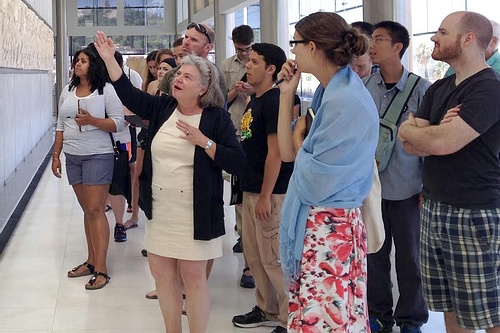
JN: Yes, we do. We have two main series of publications: one is about the Agora excavations and the other is about the Corinth one. We also have a journal called Hesperia, which was started in 1931 CE and contains thousands of articles on our work. Producing these is an expensive undertaking since they need a lot of editing. A volume could cost around $100,000 and would sell 500 copies at the most, but we have a publication office in Princeton who handles that, and we bear the cost for the sake of keeping a permanent record of our work. We also release guidebooks of our excavation sites and published a series called The Agora Picture Books, which we sell worldwide.
ED: We have always made an effort to market the school to potential students in the US and Canada, and our earliest preserved advertising booklet is from 1924 CE. Due to the canceled semester, we have been putting on a series of webinars, which have been running since June and have received several thousands of views. Scholars like John Camp have lectured about things like the architecture of the Hephasteion and the Battle of Salamis, and appearances have even been made by the US Ambassador to Greece, Geoffrey Pyatt. So it has been quite a successful endeavor.
SF: Thanks for talking to me Eric and Jenifer. It has been a great chat. What will the American School be doing for the rest of the year?
ED: Our students who remained in Greece on residence permits are continuing their studies, so we are making our resources available to them, and we are also looking forward to planning next year's programs.

